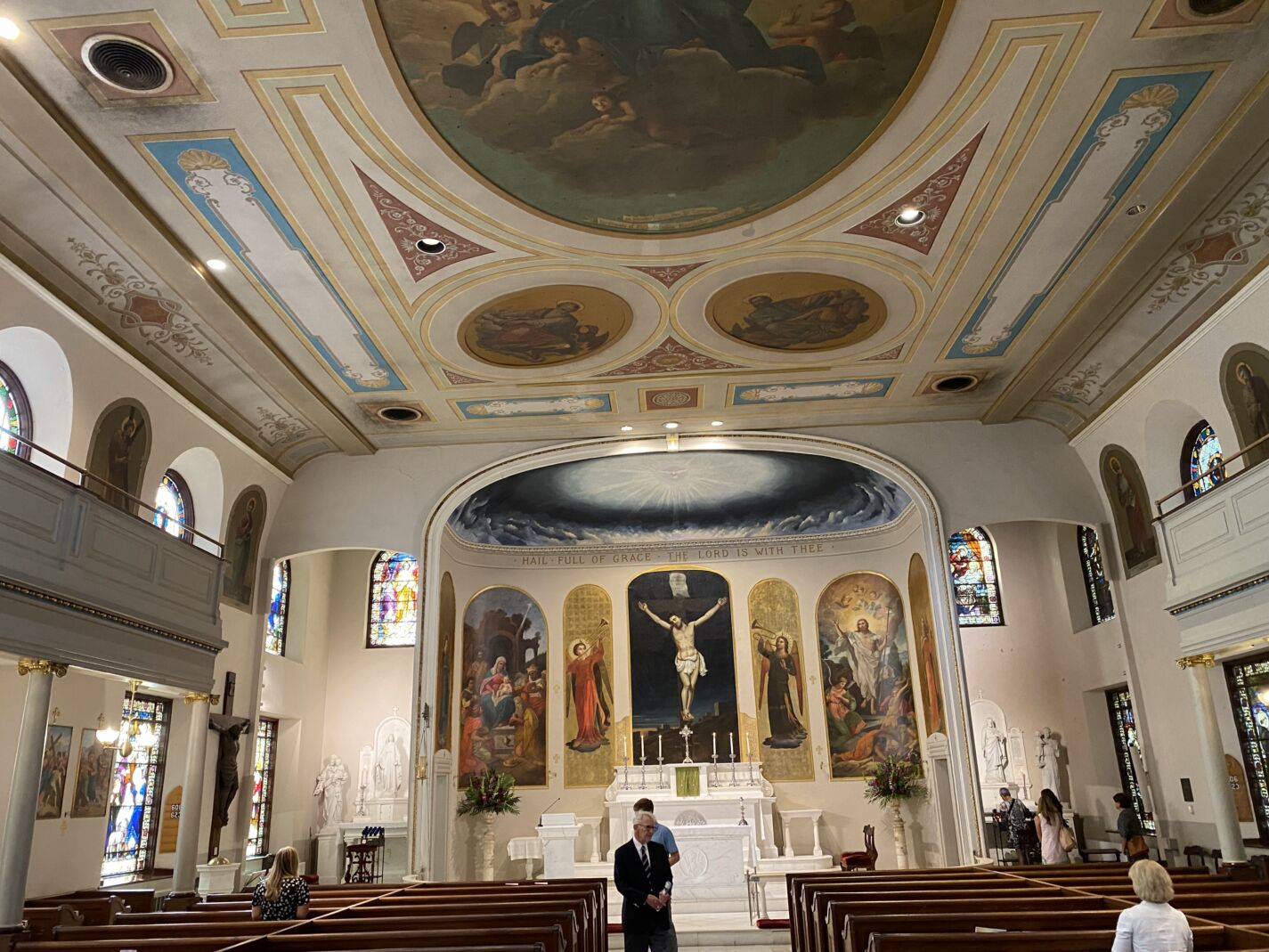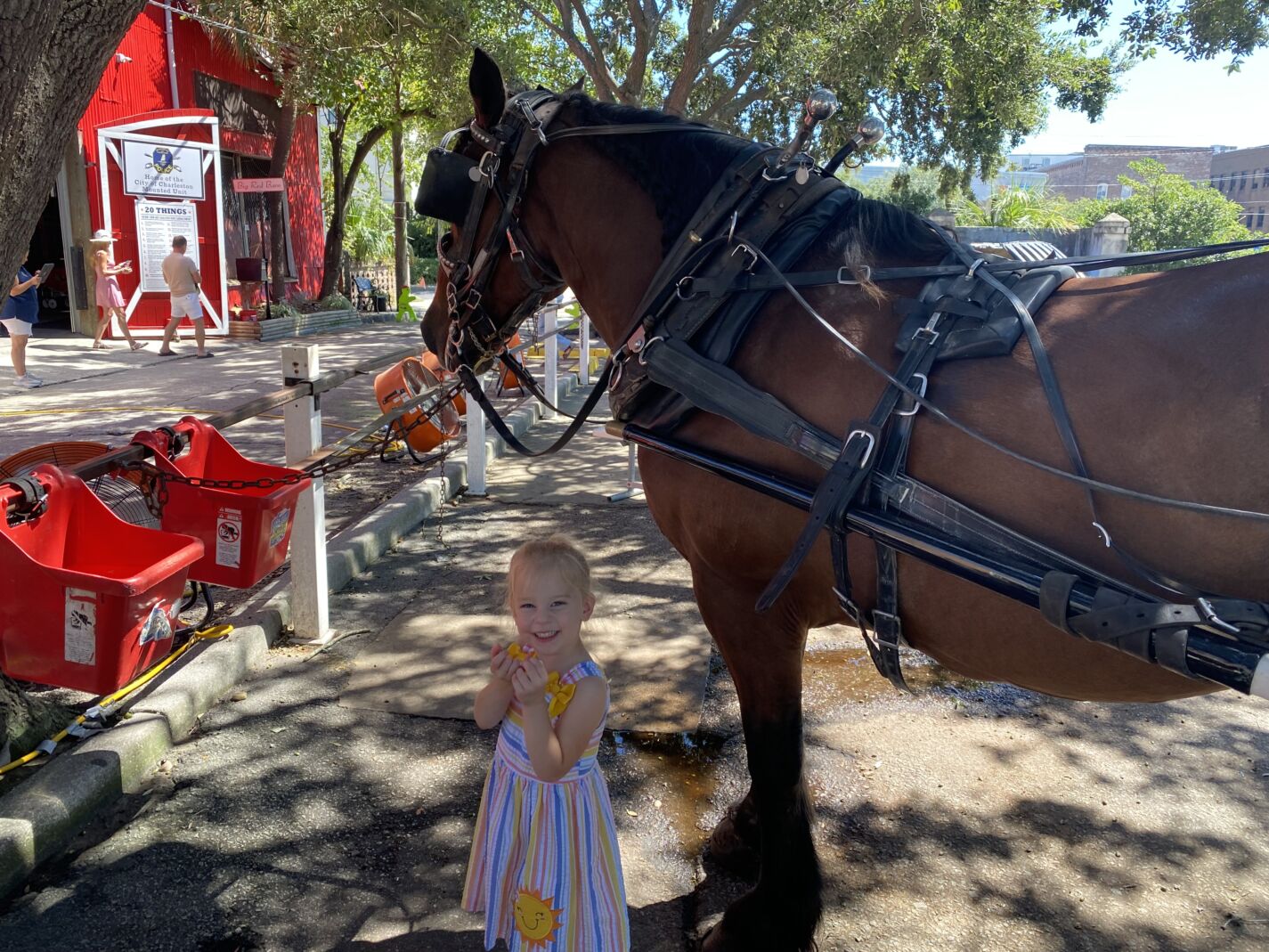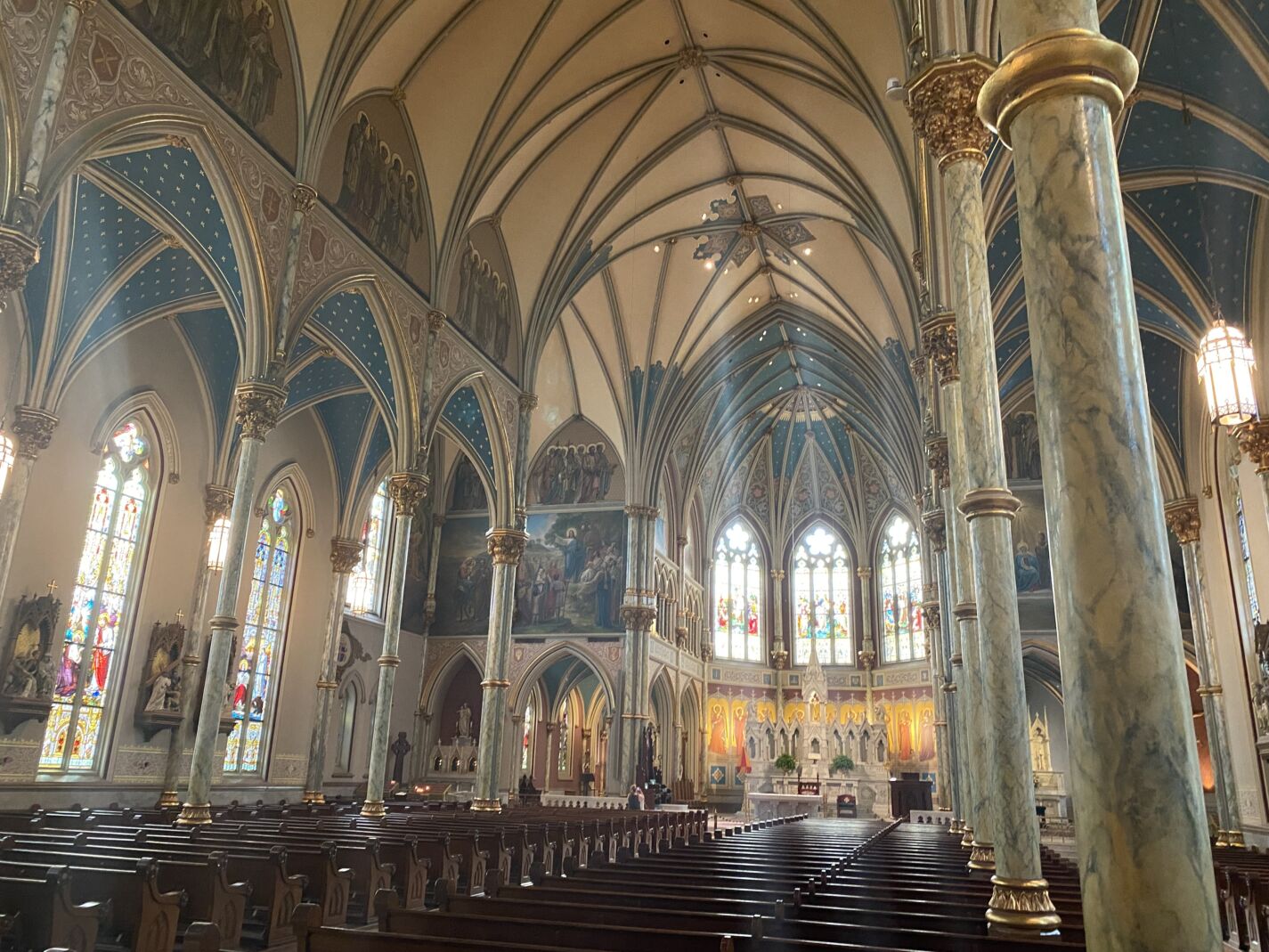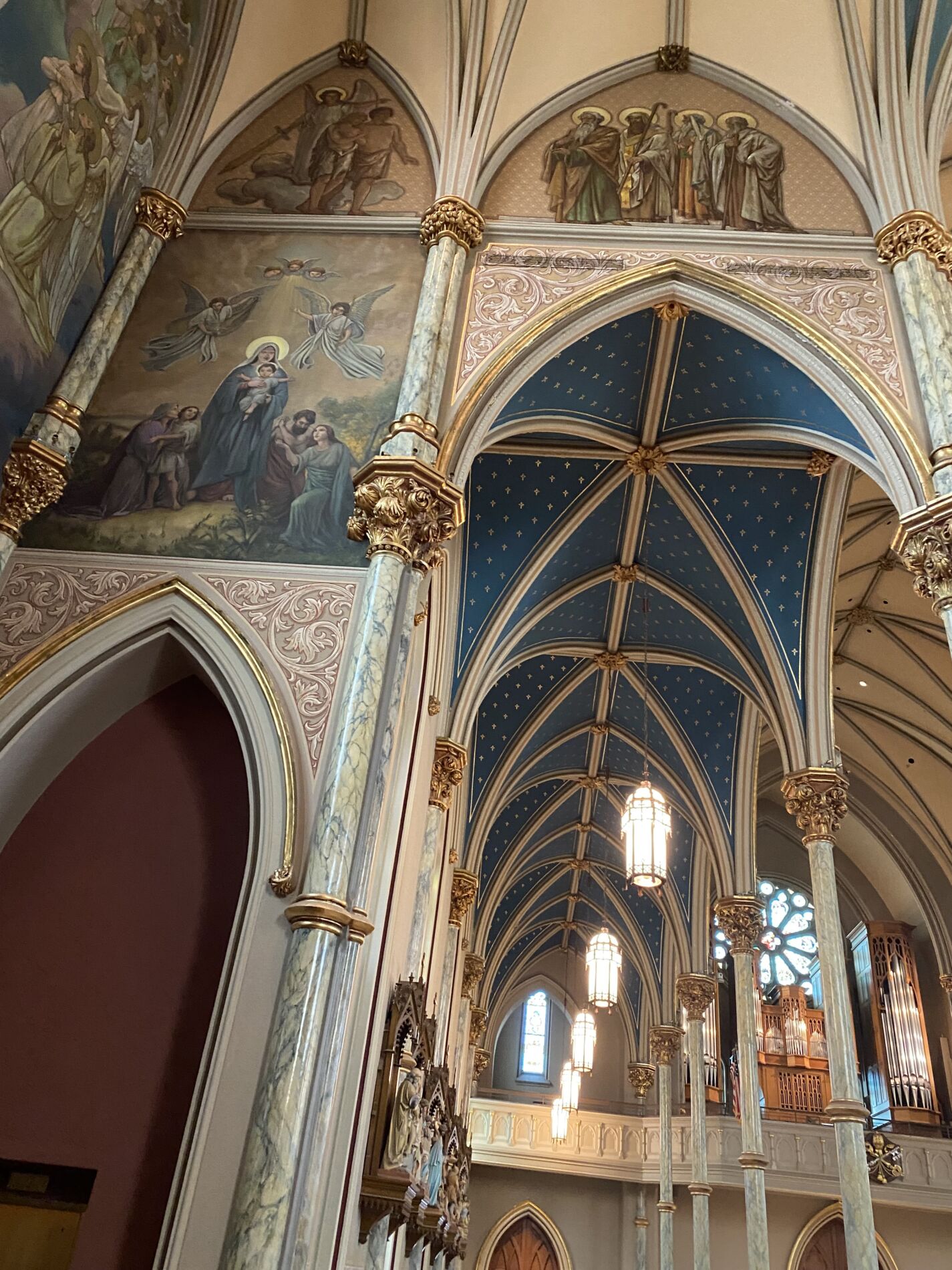Over the past week, I had the pleasure of traveling to Charleston, South Carolina, and Savannah, Georgia — two of the most beautiful towns in the country (leaving aside all those obviously better places in North Carolina).
It was great to see my two young children enjoy every second of the sand and waves at the pristine beaches. The narrow cobble-stone colonial streets lined with shops and restaurants called back to a time with more human patterns of development. And the artful interplay of natural and built beauty hit me as I rounded each corner in their historic districts.
But my Catholic faith was one element I did not expect to be directly relevant to the trip. On Sunday, to meet my weekly obligation, I looked into nearby parishes and found St. Mary of the Annunciation downtown. The bulletin casually mentioned that it was the oldest Catholic Church in Georgia and the Carolinas, begrudgingly approved by the South Carolina General Assembly in 1791.

After Mass, I (naively) suggested to my wife that we take the two children for a horse-and-carriage ride in downtown Charleston so my daughter could feel like Cinderella, one of her favorite princesses this month. On the tour, the guide said that Charleston became a boom town because it promised religious freedom. She added, “Except they did have the ABC rule: Anybody but Catholics.” My one-year-old son screamed the rest of the ride out of protest and solidarity. Thankfully, my daughter ignored all that and enjoyed the Cinderella ride anyway.

Digging a bit into this history, I found that this anti-Catholic legal environment lasted right up until the Revolution. According to historian John Gilmary Shean, in 1775, two Catholics were discovered in Charleston and “at once were condemned to be tarred and feathered and banished from the state, accused of conspiring with the Negroes against the liberties of the country. Catholics kept their faith so secret that they were not even known to one another.”
When we traveled on from Charleston to Georgia, at the top of many lists of “must-see” attractions, I was surprised to see a Catholic cathedral — the Basilica of St. John the Baptist.
It may have been the most beautiful and ornate church I’ve seen in the United States, and I’ve seen quite a few. Pictures really don’t do it justice, as every square inch of each corner has something to catch the eye. But I took a few pictures anyway.


Curious if colonial Georgia had been any friendlier to Catholics, I did a bit more research. Similarly to South Carolina, in the 1732 Georgia colonial charter, it also had a clause granting religious liberty, but with a familiar exception.
[F]orever hereafter, there shall be a liberty of conscience allowed in the worship of God, to all persons inhabiting, or which shall inhabit or be resident within our said provinces and that all such persons, except papists [those with allegiance to the pope in Rome], shall have a free exercise of their religion…
Our home state of North Carolina also did not allow Catholics to wander about freely. But this all changed after the Revolution. Even with popular sentiment remaining very anti-Catholic, these laws began to lift, as the new nation attempted to live up to the principles of liberty that were its foundation. For other Americans, like black slaves, it would of course take much longer for these principles to be applied.
In North Carolina, the rebels began to recognize Catholics even before independence was achieved. Thomas Burke, an Irish Catholic for whom Burke County is named, was selected to represent our state at the Continental Congress and then became the state’s third governor in 1781. Coincidentally, Burke lived in my hometown of Hillsborough and is buried off Governor Burke Road, where the town’s Catholic parish is located.
Another prominent early North Carolina Catholic was William Gaston, who was a member of the NC General Assembly (including as House speaker), a US House member from 1813 to 1817, a NC Supreme Court justice, and the author of the state’s official song, “The Old North State.” Lake Gaston, the City of Gastonia, Gaston County, and other landmarks around the state are named after him. While North Carolina officially tolerated Catholics post independence, they continued to be banned from holding office. The fact that this law was ignored in Gaston’s case showed his skill as a politician.
I don’t just say all this to provide some interesting history (and because my attention was diverted further south for the week). Learning all of this as a convert to Catholicism, who would have been in constant danger for allowing my worldview to take frequent turns as a young man, led to a lot of reflection. And the six-hour trip back provided plenty of opportunity for that.
While we should always seek a more perfect union, we should also take time to appreciate that there is no “except X group” clauses in our current laws regarding which worldviews can be held in North Carolina or the country at large. Unless your religion encourages its adherents to break some serious laws, it is now given fairly wide deference and conscience protections.
Religious freedom is often called America’s “first freedom,” because it’s the first mentioned in the Bill of Rights. But it’s also the first freedom in terms of importance. If we are not allowed to live according to our values and highest ideals, the rest of the rights don’t matter much.
There’s no doubt that some would still have my coreligionists tarred, feathered, and banished — like the two in Charleston — but for now, we are all fortunate to live in one of the few times and places in human history where the law allows us all freedom to believe and practice our faith.
But this is not guaranteed to last, so let’s always be vigilant to guard our first freedom.